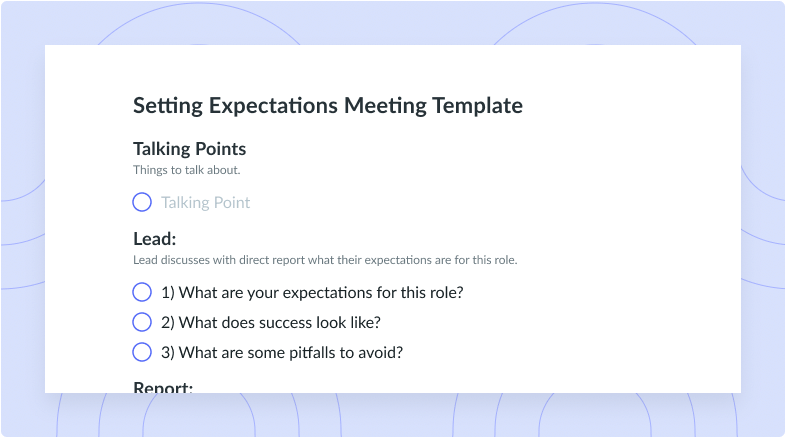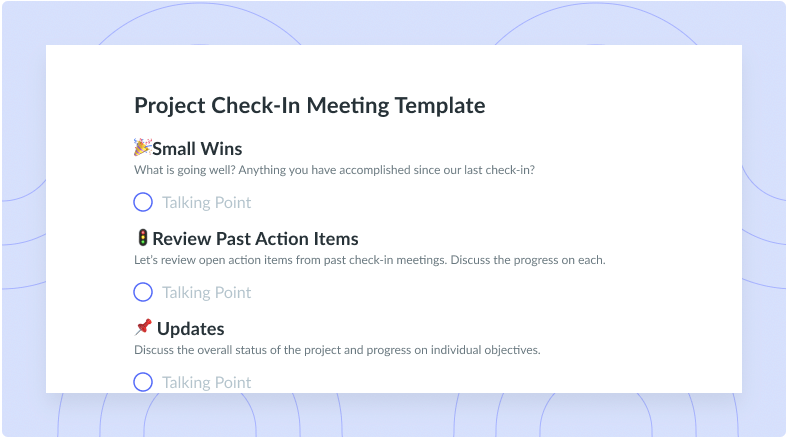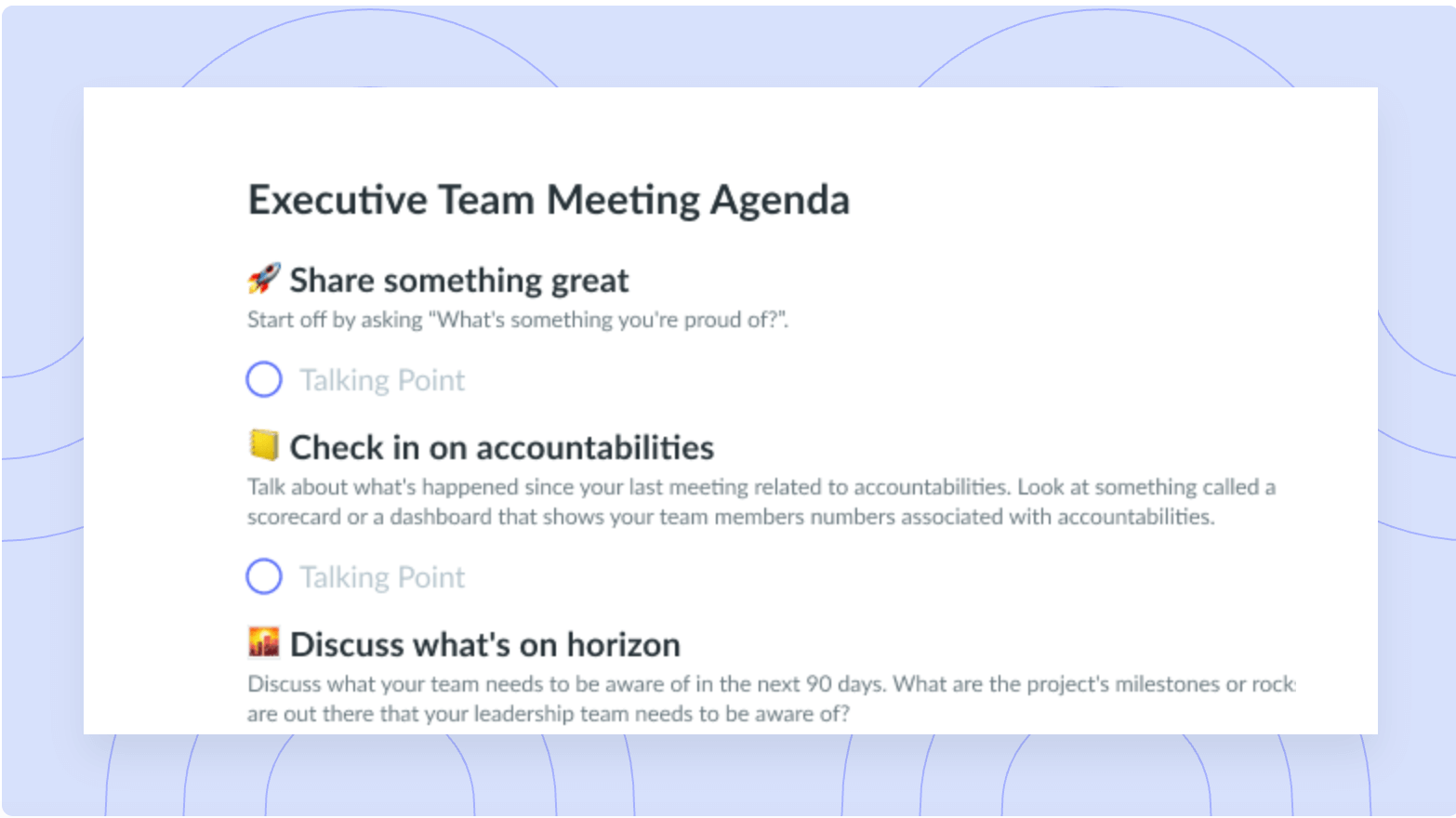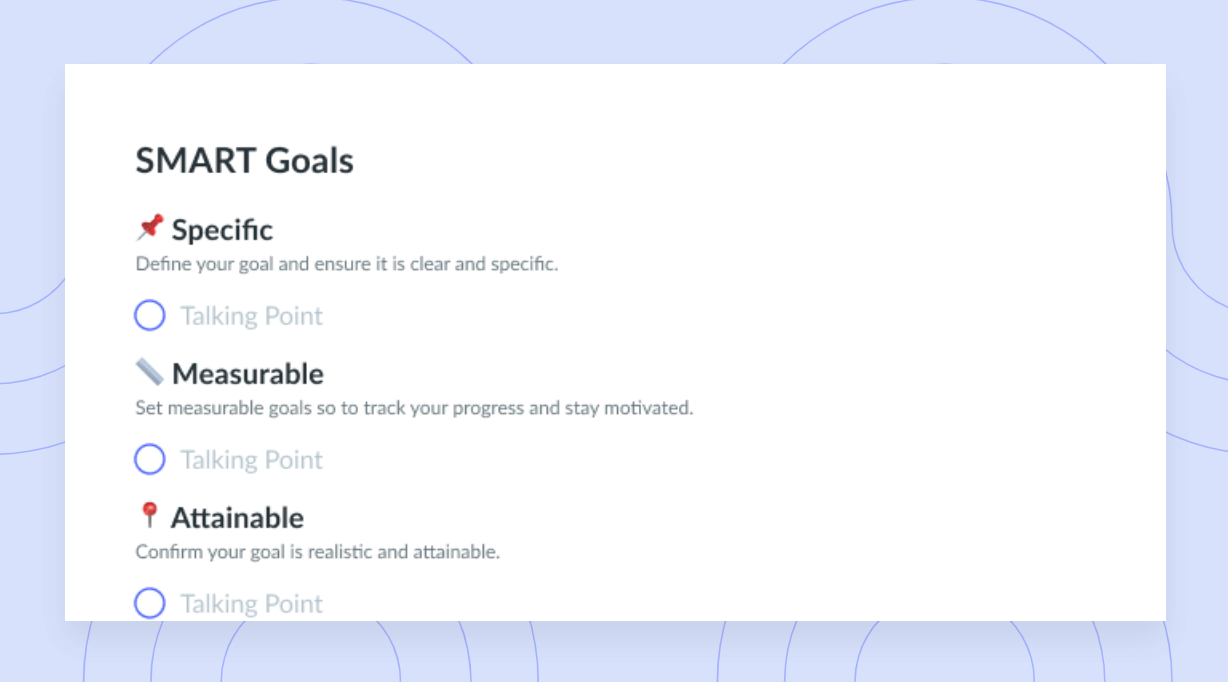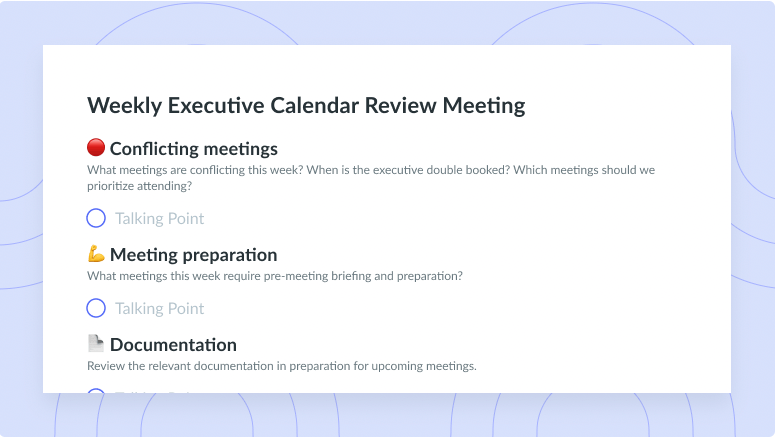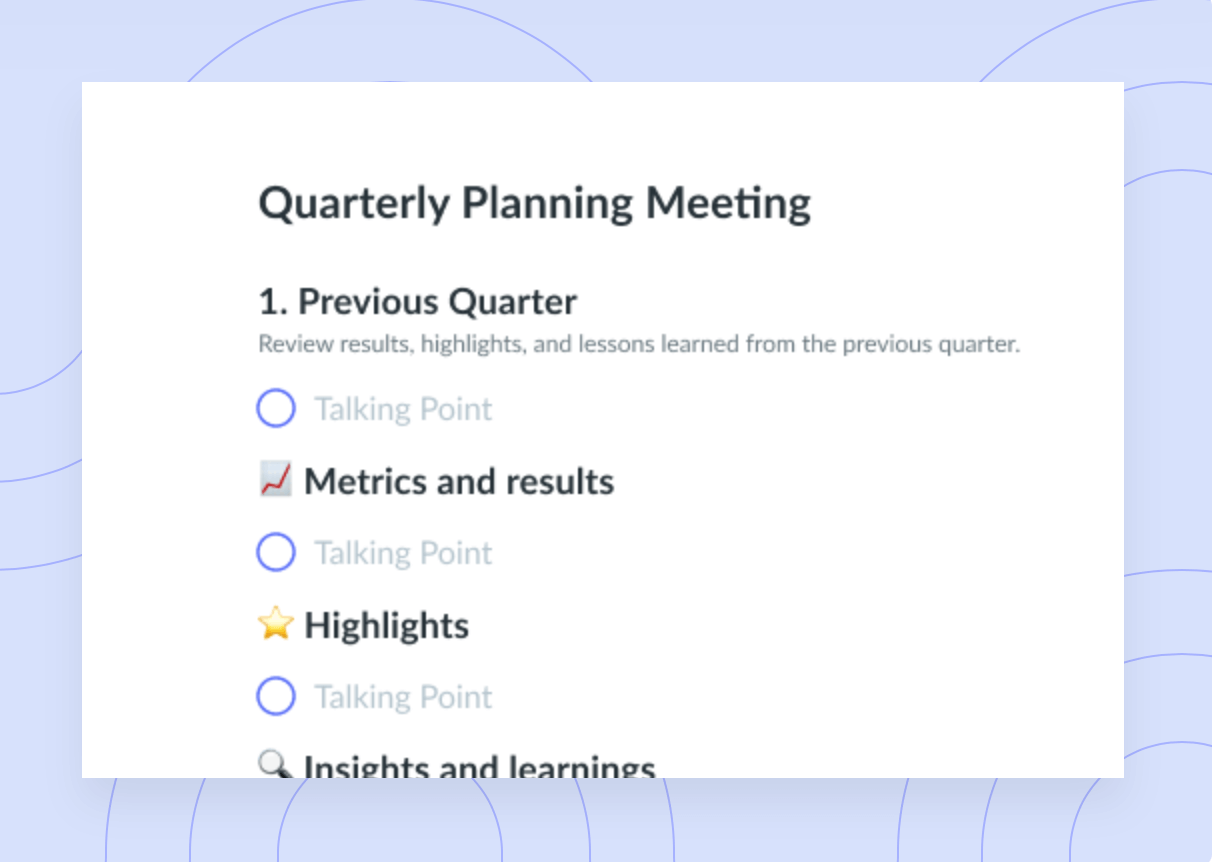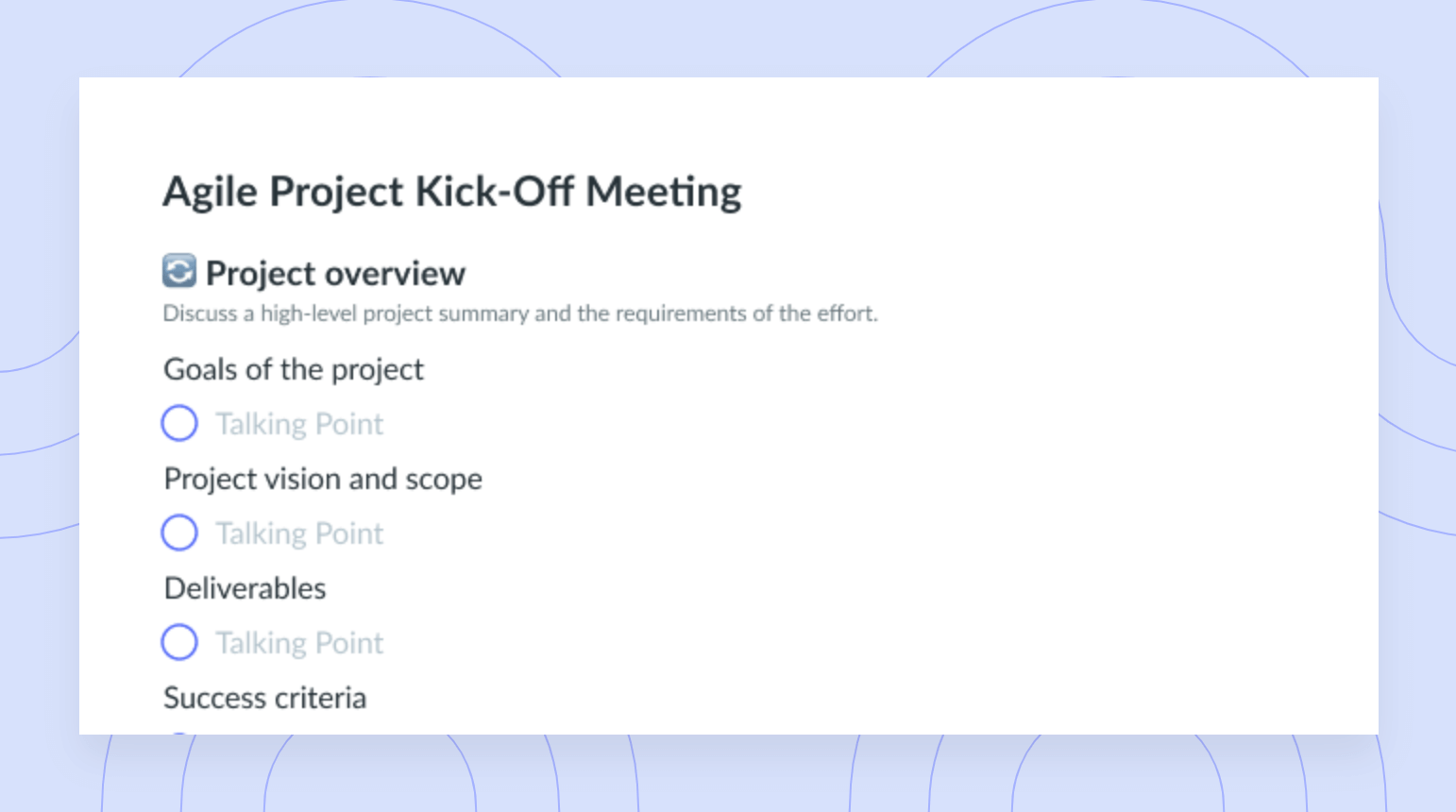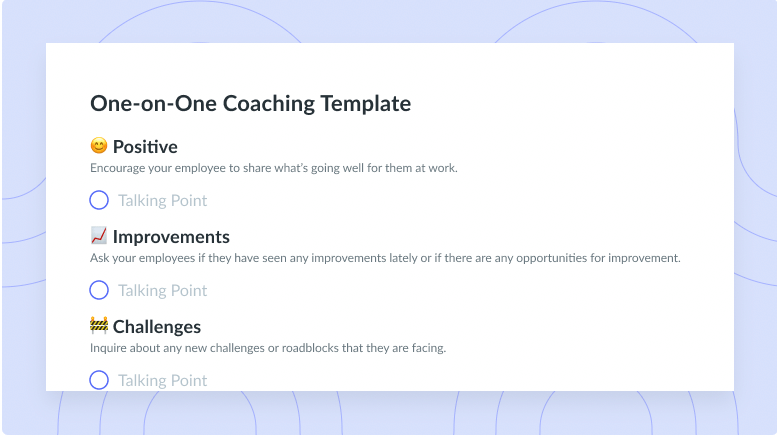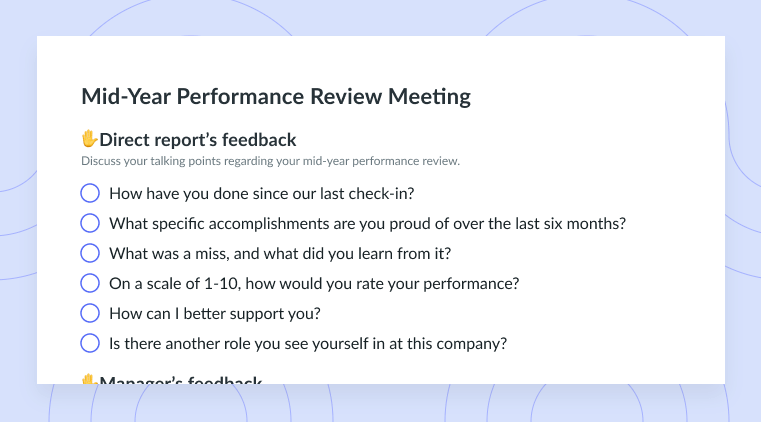Say Goodbye to the 10 Biggest Workplace Time-Wasters
Eliminate time-wasters at work by remaining organized, setting clear boundaries, and getting clear on expectations, goals, and objectives.
Time-wasters at work are bountiful. From social media notifications to watercooler chats, flooded inboxes, and everything in between, getting distracted and ending up off track at work is easy. In this article, we’ll teach you how to combat the 10 biggest time-wasters at work so you can work more efficiently without distraction.
- Why is it important to avoid work time-wasters?
- 10 of the biggest work time-wasters
- How to avoid time-wasters
- Free weekly planner
Why is it important to avoid work time-wasters?
Time-wasters at work can have many negative effects including stress as well as poor focus and concentration. By avoiding time-wasters at work, you can focus on meaningful and productive work, leading to increased productivity, efficiency, and greater job satisfaction. Time-wasters at work can also be incredibly distracting. Minimizing these distractions will help you maintain better focus and concentration on your core responsibilities, ensuring you can work efficiently towards achieving organizational goals.

Run efficient meetings, come to a decision, and get back to work
Level up your meeting habits to boost engagement and productivity with a collaborative meeting agenda. Try a tool like Fellow!

10 of the biggest work time-wasters
- Unproductive meetings
- Email overload
- Social media
- Procrastination
- Technical difficulties
- Multitasking
- Unclear expectations
- Disorganization
- Lengthy to-do lists
- Chats with team members
1Unproductive meetings
Unproductive meetings are one of the biggest time-wasters in the workplace. Not only do unproductive meetings lead to disengaged and less productive employees, but they may also be costing your organization thousands of dollars. According to Aydin Mirzaee, the chief executive officer (CEO) and co-founder of Fellow, unproductive meetings cost businesses in the United States upwards of $375B a year.
Did you know that professionals who use Fellow spend an average of 16% less time in meetings? As a purpose-built tool for meetings, Fellow supports every type of meeting from one-on-ones to project kickoff meetings and stand-ups so you can boost productivity and cut costs! Calculate the cost of your meetings with our meeting cost calculator and learn how you can save $2,600 a year by using Fellow!
2Email overload
Email overload occurs when an individual receives an influx of emails and subsequently isn’t able to manage them. This occurs when the volume of emails surpasses the individual’s ability to keep up and is often a result of poor organization and mismanagement. Additional factors that may cause email overload include receiving a large volume of emails, ineffective email communication, and constant connectivity. It’s important to note that the consequences of email overload can be detrimental and will ultimately lead to hours of wasted time.
3Social media
It’s no secret that social media is one of the biggest time-wasters in both our personal and professional lives. Not only does it deviate our attention, but it draws us in and leads to mindless scrolling that can last for hours. Many people aren’t disciplined when it comes to social media. Checking a notification leads to hours of screen time, which ends up being a huge time-waster. To avoid this time-waster, it’s best to take a proactive stance by muting your notifications while at work. This will ensure you don’t unintendedly get sucked in and waste your valuable time.
4Procrastination
Procrastination involves delaying or avoiding tasks that must be completed. The time that you spend procrastinating is often all the time it would take to complete your task, meaning it often isn’t worth the added stress. In addition to delaying your task execution, procrastination can also lead to increased stress and pressure, reduced focus and concentration, missed opportunities and deadlines, a loss of productive hours, and a decline in work quality. Overcoming procrastination is crucial for effective time management.
5Technical difficulties
The use of emerging technologies in the workplace is becoming increasingly prevalent and for good reason. Leveraging technology can help you increase productivity, organization, and efficiency. However, it can also have the opposite effect; leveraging new or unfamiliar technology may result in technical difficulties that can lead to hours of wasted time. If you’re looking to put some time back into your calendar, Fellow’s Time Saver automation will help remove unproductive meetings with no agenda from your calendar and give you the time back to use more productively. This simple automation could end up saving you hours of wasted time every week!
6Multitasking
When you’re multitasking, you’re dividing your attention. Instead of focusing intently on a specific task, you’re spreading your time and going back and forth between several tasks. This means you aren’t giving your full attention to a single task, resulting in reduced focus. Constantly switching your attention between tasks prevents you from entering a flow state, which is necessary for optimal performance. Because it takes time for your brain to process switching from task to task, multitasking will lead to decreased productivity and prolonged task completion. When you stop multitasking, you can be more present and engaged in your work, resulting in higher-quality work and less wasted time.
7Unclear expectations
When expectations aren’t clear, this can lead to misaligned priorities, repetitive work, missed deadlines, task uncertainty, lack of accountability, and procrastination. To avoid these time-wasting consequences, it’s essential to communicate clear expectations, set specific goals, and encourage an open line of communication. Collectively, these practices will help you set clear expectations.
8Disorganization
To quote Mike Kappel, founder and CEO of Patriot Software, LLC.,
“Wasting time sifting through paperwork and files is something no one wants to do. Plus, being disorganized is stressful and frustrating for everyone—not just you.”
Not only will your disorganization impact you, but it will also impact those around you. In addition to wasting everyone’s time, it can also be incredibly frustrating. There are several tactics you can implement in your everyday life to combat disorganization, like decluttering regularly, using a calendar or a planner, implementing the time-blocking method, leveraging a file-sharing or document hub, minimizing distractions, developing routines, batching tasks, practicing mindfulness, and seeking support and accountability.
9Lengthy to-do lists
Lengthy to-do lists can be overwhelming, making it challenging to know where to shift your focus. This decision paralysis can lead to wasted time and reduced focus. An extensive list can also scatter your attention, making it challenging to prioritize your most important tasks. To eliminate this time-waster, it’s important to create a manageable, realistic list that consists only of essential items. This means creating a compact list that allows you to prioritize tasks based on their importance and urgency.
10Chats with team members
Chatting with your teammates can be a major time-waster, especially if the chat isn’t a structured conversation. While small talk here and there is crucial to forming workplace relationships, it can get out of hand from time to time. To avoid unnecessary lengthy conversations with coworkers, it’s best to set clear boundaries. Set aside time for pleasure and work. This will ensure you have the time you need to form workplace relationships without interfering with your work.
How to avoid time-wasters
- Time block your calendar
- Track your time
- Put your devices on do not disturb
- Avoid checking your emails
- Prioritize your tasks
1Time block your calendar
Time blocking is a time-management technique that involves dedicating specific blocks of time to a set of tasks or categories of work. Fortunately, many calendar apps support time blocking with features that allow you to allocate specific time blocks to different activities within your calendar. This makes it possible for you to organize your time while educating your colleagues on when you will be available and when you will be focusing on deep work, helping you organize your time more effectively to avoid time-wasters.
2Track your time
Time tracking can be a powerful way to help you increase productivity and avoid time-wasters. Because time tracking allows you to understand exactly how your time is being spent, it can help you become more aware of activities that may be consuming excessive time or distracting you from important tasks. Time tracking can also help you identify activities or habits that may be time-wasters, like social media, watercooler chats with colleagues, or prolonged breaks.
3Put your devices on do not disturb
Notifications are the epitome of time-wasters. Whether it be a Snapchat from a friend, a Facebook message from a family member, a LinkedIn pop-up with a job posting, or simply a Slack message from a colleague, a single notification can be a major time-waster if you aren’t disciplined. Putting your devices on do not disturb when you’re trying to focus on your prioritized tasks will ensure you aren’t getting distracted and wasting your valuable time.
4Avoid checking your emails
If you don’t set aside a specified block of time to check your emails, you may find yourself getting sucked in. Refraining from checking your emails frequently throughout the day will ensure you don’t get distracted or drawn away from your priorities, helping you maintain an uninterrupted workflow.
5Prioritize your tasks
Prioritizing your tasks is an excellent time management technique that will help you avoid unwanted time-wasters by ensuring your energy is being spent on your most impactful tasks. If you’re someone who struggles to prioritize all of your tasks, Fellow’s Actions Items tab is an excellent resource that will help you reduce procrastination and allocate your time accordingly.

Free weekly planner
Looking to take your productivity to new heights? Use our weekly planner template to gain visibility of your weekly priorities, effectively manage your time throughout the week, and check important items off your to-do list!

Are you ready to combat time-wasters at work?
While it can be difficult to avoid time-wasters at work, there are practices that you can implement daily to mitigate the impact of your distracting environment. Taking the tips, tricks, and best practices listed above into consideration will ensure you can combat time-wasters and work more efficiently.










